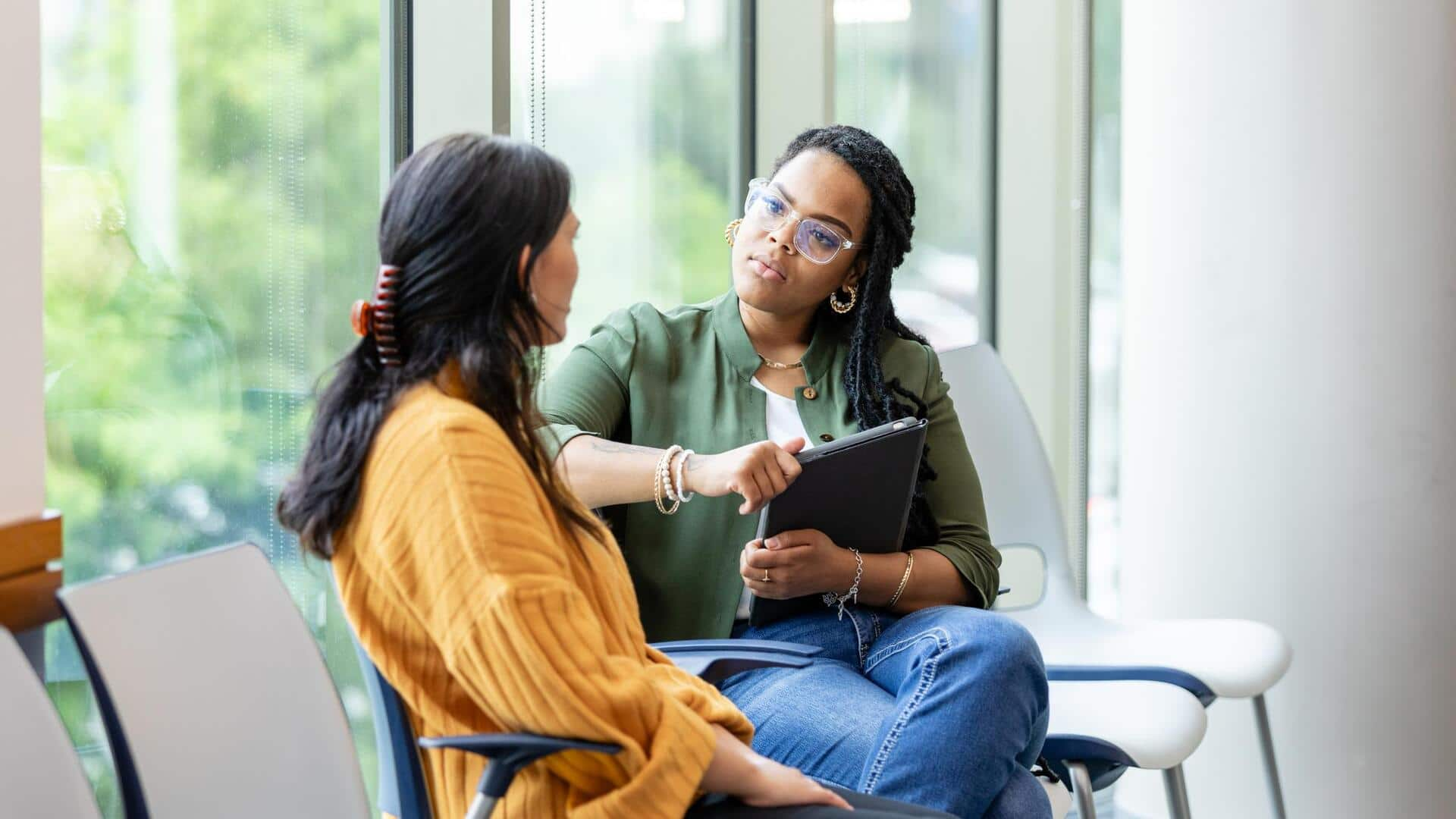
How to practice empathetic listening
What's the story
Empathetic communication is an indispensable skill that makes personal and professional relationships better. By developing daily listening habits, one can hone their ability to understand and connect with others. Here are some practical tips to cultivate empathetic listening, which can make your interactions more meaningful and strengthen the bond with your friends, family, and colleagues. These habits are simple, yet effective ways to foster empathy in daily conversations.
Engage fully
Practice active listening
Active listening demands your full attention, devoid of any distractions. This means putting away your devices, maintaining eye contact, and nodding occasionally to show you're getting it. By focusing solely on the conversation, listeners can pick up verbal cues and emotions that may get missed otherwise. Active listening establishes trust and demonstrates your genuine interest in the speaker's opinion.
Show understanding
Reflective responses
Reflective responses are essentially paraphrasing/summarizing what the speaker has said to confirm you have understood it. The technique not only shows you are paying attention but also allows you to clarify the points, if necessary. By reflecting back what you have heard, you validate the speaker's feelings and encourage them to open up more. It's an effective way of showing empathy in conversations.
Encourage dialogue
Ask open-ended questions
Open-ended questions elicit far more elaborate answers than yes-or-no questions. They prompt speakers to expand on what they're thinking or feeling, giving you greater insight into their headspace. Open-ended questions are a great way to express interest in the other person's experiences and can lead to a richer conversation. This way, you can get a better understanding of different points of view.
Respectful silence
Avoid interrupting
Interrupting can derail the flow of conversation and make speakers feel undervalued or unheard. Practicing respectful silence allows speakers to get everything off their chests before you respond or ask questions. It shows that you're patient and respect them enough to hear them out, creating an environment of safety to talk freely. Avoiding interruptions is key to keeping things empathetic.
Observe body language
Be mindful of nonverbal cues
Nonverbal cues such as facial expressions, gestures, and posture play an important role in communication. Being mindful of these signals allows the listener to read emotions beyond words. Paying attention to body language provides context, improving comprehension in conversations, especially when verbal communication is shaped by cultural differences or personal choices.